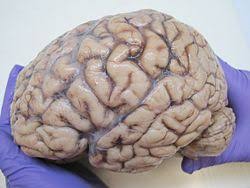
Hormone Replacement Therapy: No Long-Term Harm to Brain, Study Finds
New research offers reassurance for women considering hormone replacement therapy (HRT) to manage menopausal symptoms, showing that four years of HRT does not harm cognitive function, even a decade after discontinuation. The findings, published in the journal PLOS Medicine on Nov. 21, come from a team led by Carey Gleason of the University of Wisconsin-Madison.
The study revisits data from the Kronos Early Estrogen Prevention Study (KEEPS), which followed 727 women who began HRT around the time of menopause. Researchers assessed the cognitive health of 275 participants ten years after they had completed four years of hormonal therapy. The results showed no differences in cognitive performance between those who had taken HRT and those who had taken a placebo.
"Menopausal hormone therapy was not associated with cognitive benefits nor does menopausal hormone therapy prevent cognitive decline," the researchers concluded.
A Shift in Understanding HRT Risks and Benefits
HRT was widely prescribed for decades to alleviate hot flashes, night sweats, and other menopausal symptoms. However, its use declined sharply after the Women’s Health Initiative study in 2002 linked long-term HRT use to heightened risks of blood clots, stroke, breast cancer, and heart disease.
In recent years, a more balanced understanding of HRT has emerged. For many women, short-term HRT use during early menopause is now considered safe and effective, provided it is tailored to individual health needs.
The new findings confirm that short-term HRT does not harm the brain. However, the researchers emphasized that HRT should not be viewed as a strategy for enhancing cognitive health or preventing neurological decline.
Looking Ahead: More Research Needed
The study included women who received various forms of hormonal supplements, such as Premarin, Climara, or Prometrium, delivered via pills or patches. While the study provides reassuring evidence regarding brain health, the researchers called for further studies to explore other potential long-term effects of HRT, including its impact on mood and Alzheimer’s disease biomarkers.
"For women in menopause and the health care providers caring for them, getting direct, clear, and evidence-based information about menopausal hormone therapy is challenging. And they need data to guide their decisions," Gleason's team wrote.
These findings offer a clearer perspective on the neurological safety of HRT, enabling women and their healthcare providers to make informed decisions about its use for managing menopausal symptoms.